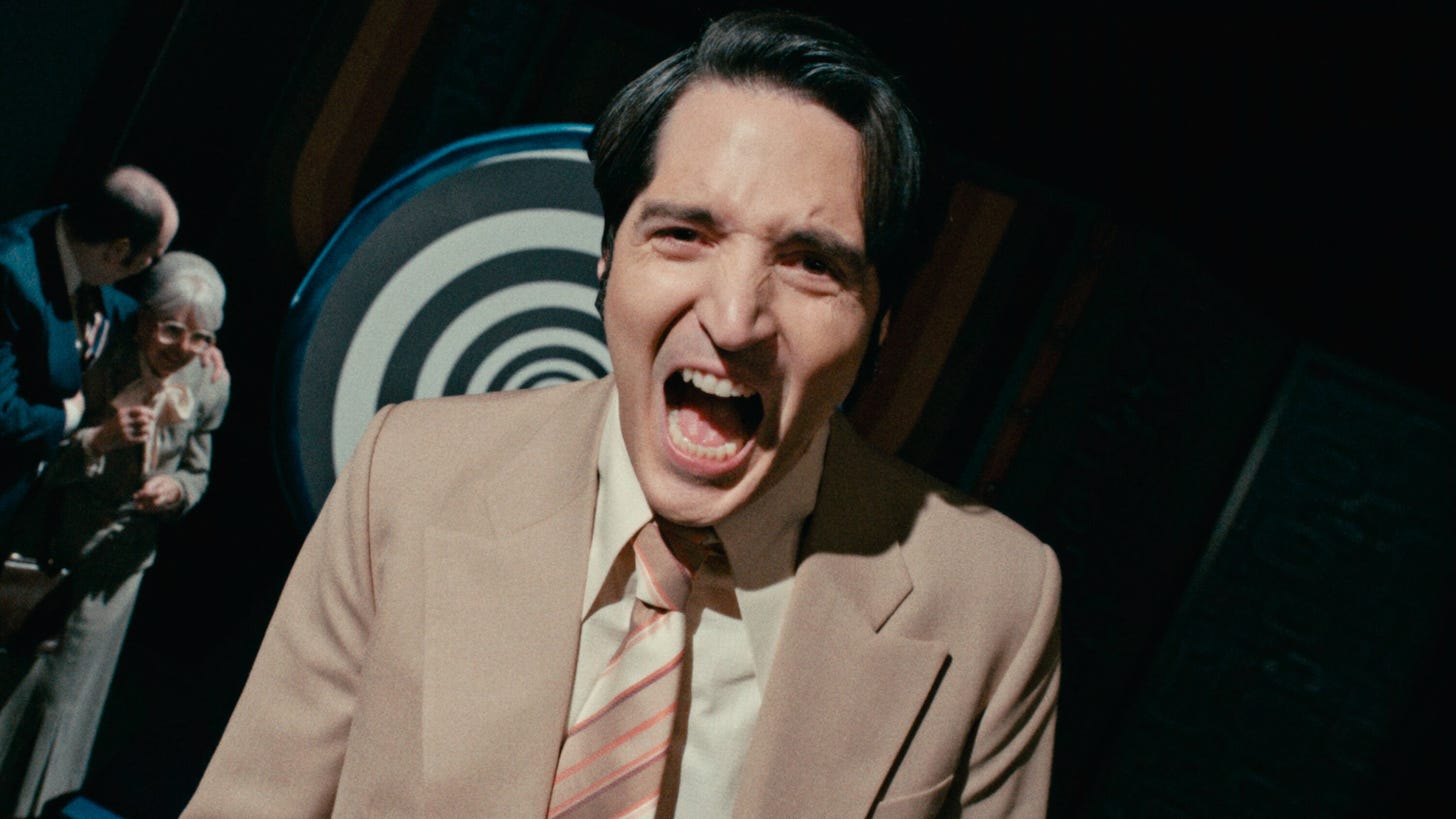'31 Nights of Horror' Day 19: Late Night With The Devil (2024)
Late Night with the Devil: A Haunting Descent into 1970s Fear and Madness
Hey, ghouls! 31 Nights of Horror is here, serving up daily scares with reviews of classic and new horror films. Watch for chilling lists and other spine-tingling pieces. Keep your lights on… the terror begins now
After rewatching an FYC screener of Late Night With The Devil, it becomes even more clear how Colin and Cameron Cairnes have crafted a mesmerizing, slow-burn horror film that taps into both primal fear and nostalgia. Imagine The Tonight Show descending into pure chaos, with a host like Jimmy Fallon or Jay Leno unwittingly inviting a living nightmare onto their stage—only this time, the laughs die in the throats of the audience as terror takes over. That’s the wild premise driving this film, and it delivers on the tension like a ticking time bomb.
At the core of this devilish ride is David Dastmalchian, who gives a performance so magnetic and layered, it feels like the film is breathing through him. He plays Jack Delroy, a late-night talk show host trapped in a ratings war with none other than Johnny Carson. Hungry for relevance and viewership, Jack invites increasingly provocative guests onto his show. But this is no ordinary Halloween special—it's 1977, and in the shadow of the looming satanic panic, Jack’s decision to welcome a psychic, a skeptic, and a parapsychologist escorting a haunted young girl ends up as an invitation to doom.
What Late Night With The Devil does best is capturing the eerie, authentic vibe of 1970s late-night TV. The set, the wardrobe, even the smoky hue of the lighting feel like they’ve been pulled from a forgotten VHS tape, rediscovered in a dusty basement. You almost wish Night Owls with Jack Delroy had actually aired, because it's as much an homage to the late-night shows of that era as it is a descent into madness. The period detail is impeccable, and it gives the film a sharp edge, especially as it taps into the fear of the unknown that gripped America during the height of the satanic panic.
Dastmalchian’s portrayal of Jack is nothing short of electric. He's a man dancing on the edge of a cliff, and you feel every tremor of desperation in his performance. There’s a chilling duality to Jack—one moment, he’s the charming host with a forced laugh; the next, he’s parading his terminally ill wife in front of the camera, a grim plea for sympathy and ratings. Dastmalchian inhabits this role with an unnerving grace, balancing charisma with the quiet unraveling of a man whose ambition has crossed into dangerous territory. It’s the kind of performance that grips you by the throat and refuses to let go.
However, for all its strengths, Late Night With The Devil doesn’t always hit the high notes on the horror scale. The scares are subtle, perhaps too subtle at times, and while the atmosphere is masterfully built, the film never quite delivers the kind of visceral terror that leaves you clutching the edge of your seat. There are certainly eerie moments, and the practical effects are impressive, but you find yourself wanting just a bit more bite in the scares.
The film’s found-footage style is another area that could have used more consistency. While it starts out with the illusion of being a “lost episode,” it occasionally breaks this immersion by cutting away to backstage scenes without much explanation. These moments weaken the otherwise strong tension, leaving a nagging sense that something was lost in translation.
Yet, even with these minor flaws, Late Night With The Devil is an intoxicating experience. The ending may leave some scratching their heads—it’s abrupt and ambiguous—but that ambiguity adds to the film’s charm. It doesn’t hand you easy answers; instead, it lingers like a half-remembered nightmare. The Cairnes brothers direct with a steady hand, filling the screen with haunting imagery and a palpable sense of dread. It’s the kind of horror film that seeps into your bones, more unsettling the longer you sit with it.




